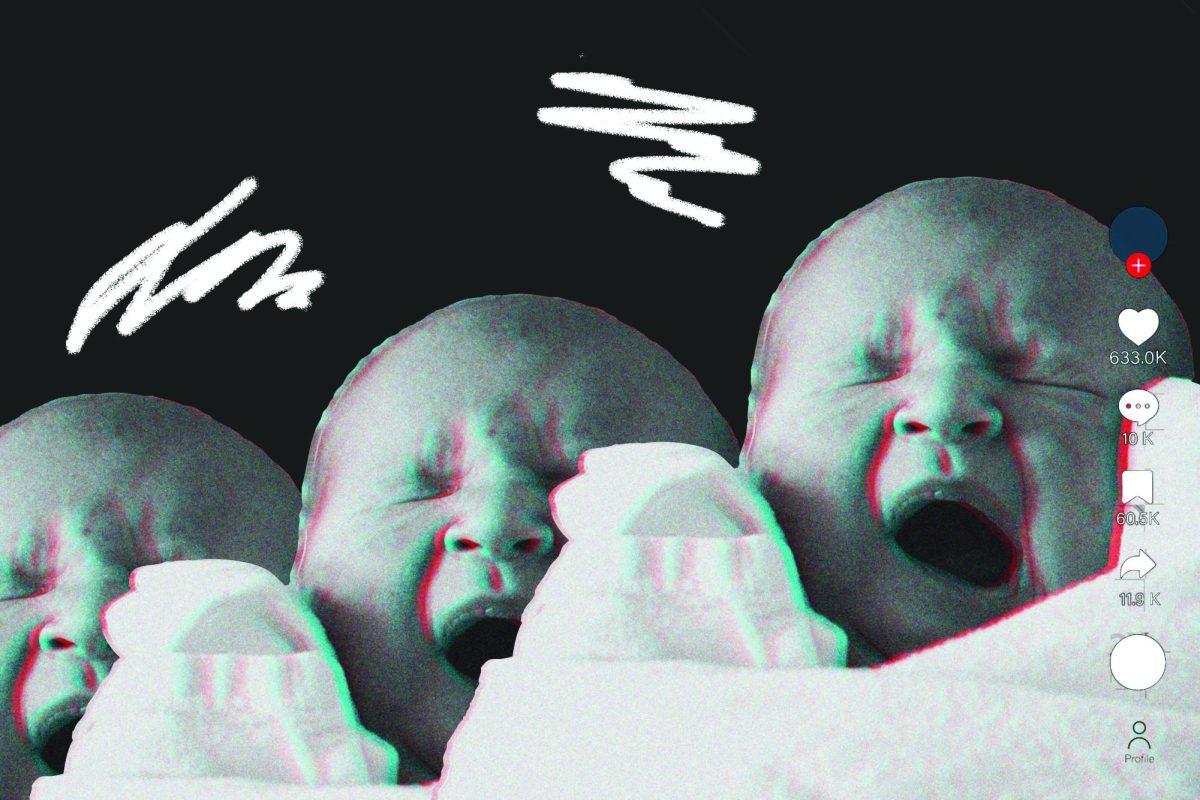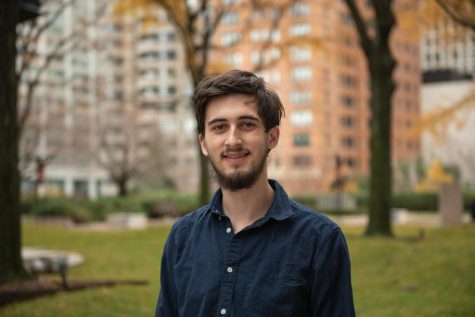In recent years, family-centered content on TikTok has been reaching greater audiences than ever before. This ranges from videos showing children lounging and playing games to parents oversharing private information concerning their children’s lives. The problem with this type of content are the exploitative practices behind it.
Family vlogging is not a new nor recent subsection of content creation, and has been around since the creation of platforms such as YouTube in 2005. Since then, several parents began using social media platforms to share intimate moments of their family’s daily lives with larger audiences.
In the U.S., parents legally have the right to upload videos of their children online. There is no law that specifically prohibits parents from sharing content of their child or from exercising the right to share their family life on social media. This allows parents to misuse their authoritative power and post their children on social media without the consent of the child.
Some states are beginning to set up protections for child influencers, though. Illinois recently signed a bill that will go into effect July 1, 2024, ensuring that children under the age of 16 are compensated for any content they are featured in.
Parents are supposed to be safeguards for children, but the family influencer career is antithetical to that aim. Children with influencer parents risk having cameras shoved in their faces during delicate moments, such as their first period or if they fail a test in school. Their steps in their adolescence are documented and viewed by thousands of people a day.
Not only is this content an invasion of privacy for children as they are unable to have the authority to consent to what is being uploaded, but it should also be considered child endangerment. Considerations regarding online safety as well as “stranger danger” have gone completely out the window.
Parents are now providing more avenues for child predators to obtain content from their children. Jaquelyn Paul, a mother of one and a content creator on TikTok, came under fire for posting videos of her toddler in “compromising situations” as Paul showcased her playing with tampons or bathing. These types of videos often reached the attention of adult men, many of whom left comments displaying their perversion.
Parents are supposed to be safeguards for children, but the family influencer career is antithetical to that aim.
Viewers noticed the uptick in this style of content from Paul and the increase in shares and likes the videos were receiving. As a mother, she has the duty of protecting her child from sexual exploitation on social media.
Following this controversy, many parent influencers, including Bobbi Althoff, decided to no longer post their children’s images on social media or discuss them at all. Althoff, who originally began her social media career as a family TikToker, has recently changed her content style to focus on herself rather than her children.
This rebrand has been extremely successful for Althoff and allowed her to gain popularity. The American media personality now hosts her own podcast called “The Really Good Podcast” and has proven that being an influencer does not need to revolve around her role as a mother.
While Althoff has shifted the focus of her content away from her children, others are only getting more exploitative.
The exploitation of children will have serious consequences in the future and it is vital for children’s safety that these protections are put into effect immediately as the industry continues to grow.
Recently, Ruby Franke of the 8Passengers YouTube channel was arrested on felony child abuse charges and lost custody of her children. Franke had been documenting her children’s lives on YouTube since 2015 for their 2 million subscriber base to see. The channel was deleted in 2022 after Franke and her husband Kevin Franke separated.
Franke and her ex-husband were often criticized by viewers for their abusive parenting practices. Shari and Chad Franke, the eldest children, cut ties with their parents once they turned 18. The youngest four Franke children are currently in state custody following their mother’s arrest.
Since the Franke family publicized their lives for several years, the ongoing investigation has become highly documented as well. An already traumatizing event for these children is becoming even more so as intimate details of their mother’s abuse are shared with the public.
The problem with these social media accounts is the lack of autonomy children have if a parent chooses to disregard their child’s needs in exchange for social media validation. In these cases, children are treated as props rather than humans.
One argument family influencers typically make is that their children enjoy the popularity and recognition of being famous on social media. However, it can be said that children cannot grasp or understand the implications of their lives being documented on social media; they cannot logically consent to such an impactful decision.
While Althoff has shifted the focus of her content away from her children, others are only getting more exploitative.
Another argument that many parents make is that nobody has a problem with child actors and their fame compared to children being posted on social media. The difference between a child actor and a child influencer, however, is quite stark.
Child influencers rely on personal information to be shared whereas child actors are impersonating a role. There are virtually zero boundaries between the viewer and the child as an influencer. Everything shared about family influencer’s children is real information compared to child actors, where their name may be publicized, but oftentimes the child actor is recognized under the name of the character for which they are famous.
While it is true that the entertainment industry can be exploitative toward child actors, child actors receive far more legal protections than child influencers. The Coogan Law protects the actor’s earnings from their parents and requires that 15% of the wages earned by a minor be withheld by the employer and placed into an account that will become accessible once the child is an adult.
In contrast, child influencers are susceptible to never receiving any payment from their parents’ influencer fund, despite being the focus of popular and lucrative social media accounts. This means that parents can make unlimited amounts of money from their children without them sharing in the profits.
The environment of film production also differs greatly with numerous adults present all holding each other accountable to protect the children on set. With content creation, parents are trapped in an echo chamber without any outside influence, direction or forms of accountability.
While the influencer industry is still fairly new to many, protecting and advocating for the rights of children should be at the forefront of people’s minds. The exploitation of children will have serious consequences in the future and it is vital for children’s safety that these protections are put into effect immediately as the industry continues to grow.

















